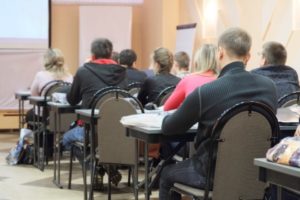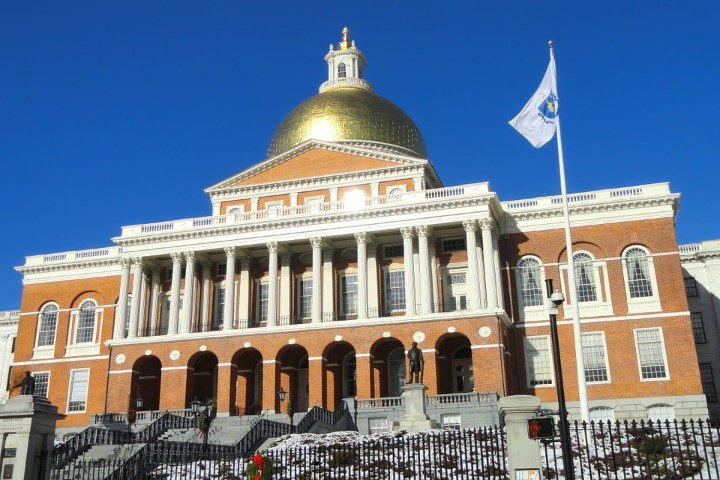Massachusetts high schoolers Mike Brodo and Zev Dickstein may not see eye-to-eye on politics, but they both agree on one thing: state lawmakers should pass a bill to promote civics education, including a requirement for a student-led civics project.


Massachusetts high schoolers Mike Brodo and Zev Dickstein may not see eye-to-eye on politics, but they both agree on one thing: state lawmakers should pass a bill to promote civics education, including a requirement for a student-led civics project.
“I think that the political environment being highly polarized contributes to this indifference and ignorance of politics you see in the media, and there’s always two sides going at it and no one talking about the state issues, local issues, how do we collaborate and work together face-to-face,” Brodo, a senior at Xaverian Brothers High School and chairman of Massachusetts Teenage Republicans, told South Coast Today “It’s always just divisiveness and tweets, and none of that’s going to get anyone interested.”
Brodo trekked to Beacon Hill, the site of the Massachusetts Legislature in early April to advocate for Senate Bill 2375 alongside Dickstein, vice chairman of the Massachusetts High School Democrats. The legislation, which cleared the Senate in March and is now in the state House, would enhance the state’s civics education curriculum requirements and mandate that students complete a civics project for graduation.
“Civics education will allow student to decide whether they want to get involved in politics and be active,” Dickstein said. “I’m not saying that everyone has to be involved, but everybody needs to know enough about politics so that they can decide if they’d like to get involved.
“This bill will ensure that all students in public school districts will have the support they need to develop civic skills and knowledge necessary to be informed and voting citizens of the commonwealth of Massachusetts and the country.”
The Massachusetts bill is sponsored by Rep. Linda Dean Campbell, who urged students to “do a really hard sell on the projects component of this legislation,” South Coast Today reports.
This effort is consistent with the findings of sociologist James Davison Hunter at the Institute for Advanced Studies in Culture. He reports findings from James Coleman that “calls for the creation of ‘new environments’ in which young people could perform public service and other important civic roles.” The heart of his synthesis “specifies three decisive components of virtuous character: moral knowing, moral feeling, and moral action.” The goal of this program is to correctly incorporate these aspects into the daily education experience of students.
“This is what’s going to make it real,” Rep. Linda Dean Campbell said. “When we talk to lower-income districts in the commonwealth of Massachusetts, this is what the teachers told us: ‘Make it real. It’s real for us now, we have issues that we’re concerned about now. Allow us to get that experience, hands-on experience, as to how to make politics work for us.”
Teachers and principals working to strengthen moral and citizenship education in their schools will find helpful information and strategies at the UK’s Jubilee Centre. In the Jubilee Centre’s own words, the following paragraph illustrates how the centre views its work: “The Jubilee Centre is a pioneering interdisciplinary research centre on character, virtues and values in the interest of human flourishing. The Centre is a leading informant on policy and practice and through its extensive range of projects contributes to a renewal of character virtues in both individuals and societies.”
Of particular note to educators is the Jubilee Centre’s document, “A Framework for Character Education in Schools” which provides an excellent description of virtue definitions and the building blocks of character and provides a list of teaching resources for teacher use.
For further reading on CultureFeed